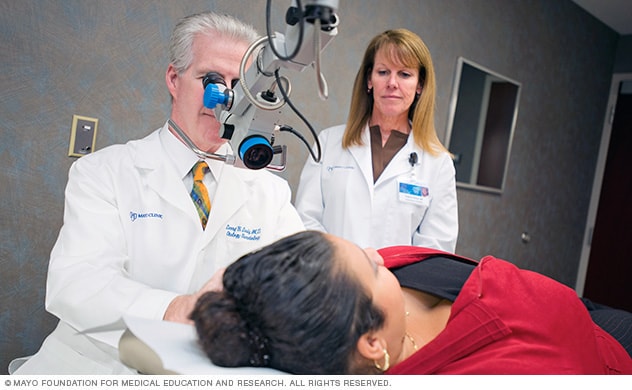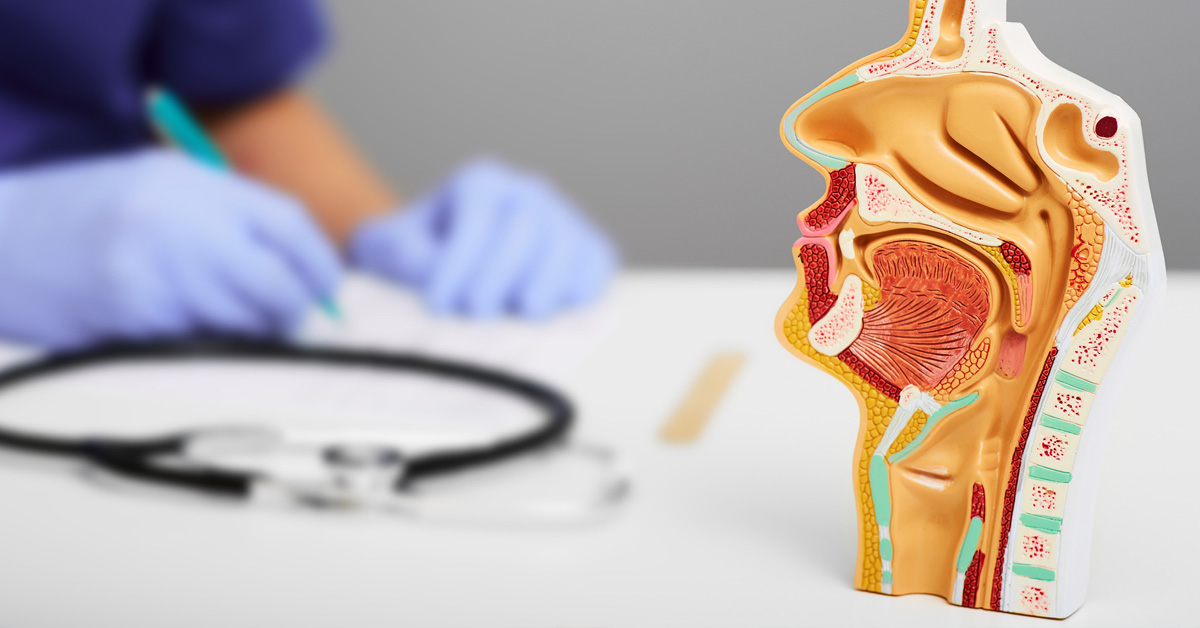Otolaryngology Explained: What Patients Should Know
Otolaryngology Explained: What Patients Should Know
Blog Article
Checking out the Field of Otolaryngology: What to Expect When You Get In Touch With an ENT
Otolaryngology, commonly described as ENT, incorporates the medical diagnosis and treatment of nose, throat, and ear conditions. For those experiencing associated issues, consulting an ENT expert can provide clearness and relief. Understanding what to anticipate during such assessments is crucial for efficient communication and treatment. This overview will detail essential elements of the ENT experience, consisting of usual reasons for check outs and the procedures involved in medical diagnosis and therapy.

Understanding Otolaryngology: An Overview
Otolaryngology, often described as ENT (Nose, throat, and ear) medicine, is a specialized branch of medicine that concentrates on the medical diagnosis and treatment of problems affecting these essential areas of the body. This area incorporates a large range of conditions, including those related to hearing, balance, respiratory function, and speech. Otolaryngologists are educated to take care of both clinical and surgical treatments, using advanced methods and modern technologies. Their know-how expands beyond typical disorders, addressing issues such as allergies, sinus infections, and hearing loss. In addition, they play a vital duty in the management of head and neck cancers, providing comprehensive treatment tailored to specific client needs. On the whole, otolaryngology stays crucial for preserving wellness and lifestyle in affected individuals.
Common Reasons to See an ENT Expert
Numerous people seek the experience of an ENT professional for a selection of factors, showing the diverse nature of conditions that influence the ear, nose, and throat. Common problems include chronic sinusitis, which typically results in consistent nasal blockage and facial pain. Allergies and their connected signs and symptoms, such as sneezing and itching, also prompt check outs to these professionals (Hearing). Hearing loss, whether unexpected or progressive, is another considerable reason for examination. On top of that, individuals may seek assessment for throat disorders, including consistent hoarseness or ingesting troubles. Sleep apnea, identified by cut off breathing throughout sleep, is frequently resolved by ENT professionals also. Each of these conditions highlights the relevance of specialized care in managing complex ENT-related wellness concerns
Getting ready for Your ENT Appointment
When planning for an ENT appointment, it is crucial to collect appropriate info and take into consideration any details issues. People should assemble a thorough clinical history, consisting of previous ear, nose, or throat problems, surgeries, and current drugs. Documenting signs and symptoms-- such as duration, intensity, and frequency-- can offer valuable understandings for the ENT specialist. In addition, individuals need to prepare a listing of questions they desire to ask, making sure that all issues are dealt with during the check out. Bringing along any type of relevant medical records or test outcomes can further aid the ENT in recognizing the client's problem. Clients ought to verify their visit information, consisting of time, date, and place, to lessen any type of last-minute confusion. Proper prep work can improve the effectiveness of the consultation and lead to better outcomes.
What to Expect During the Consultation
As the appointment begins, the person can expect to participate in a detailed discussion with the ENT professional concerning their signs and case history. The professional will ask about the period, regularity, and intensity of signs such as hearing loss, nasal congestion, or sore throat. Additionally, the person's previous medical conditions, medications, and any type of pertinent household background will be assessed, assisting the specialist in forming a full understanding of the individual's health. The ENT might also inquire about way of living variables, such as exposure to allergens or irritants. This open discussion develops a foundation for the consultation, ensuring that the patient's worries are addressed and establishing the stage for any kind of needed evaluations or referrals for therapy.
Diagnostic Tests and Procedures in Otolaryngology
A series of diagnostic tests and procedures are essential in otolaryngology to properly review and identify conditions impacting the throat, ear, and nose. Usual tests consist of audiometry, which gauges hearing function, and tympanometry, assessing center ear stress. Nasal endoscopy permits visualization of the nasal flows and sinuses, while laryngoscopy checks out the throat and singing cables. Imaging strategies, such as CT scans and MRIs, provide detailed sights of head and neck structures. Allergy testing might additionally be conducted to recognize triggers for sinus or breathing issues. These diagnostic tools make it possible for ENT specialists to develop a detailed understanding of check here clients' problems, making sure tailored and effective administration plans. Proper diagnosis is necessary for successful therapy results in otolaryngology.
Treatment Options Provided by ENT Specialists
ENT experts supply a variety of therapy options customized to address specific problems influencing the throat, nose, and ear. These therapies range from traditional methods, such as medicine and way of life modifications, to even more invasive treatments. Allergic reactions might be managed with antihistamines or immunotherapy, while chronic sinusitis could require nasal corticosteroids or sinus surgical treatment. For hearing loss, ENT professionals commonly suggest listening device or medical treatments like cochlear implants. In cases of throat problems, alternatives can include speech treatment or surgeries to get rid of blockages. Furthermore, they might provide guidance for handling rest apnea, including using CPAP tools or surgical interventions. Overall, the goal is to boost patients' lifestyle via customized care and reliable treatment techniques.
When to Seek Follow-Up Care With an ENT
Recognizing when to seek follow-up treatment with an ENT expert is crucial for handling recurring symptoms or difficulties associated with throat, nose, and ear problems. Individuals ought to consider arranging a follow-up consultation if signs and symptoms linger despite first treatment, such as persistent ear pain, nasal congestion, or throat discomfort. Adjustments in hearing, equilibrium issues, or uncommon nasal discharge may additionally necessitate additional evaluation. In addition, if a client experiences adverse effects from prescribed medications or has actually undertaken a surgery, follow-up treatment is essential to monitor healing and deal with any kind of problems. Timely examinations can ensure efficient administration of conditions, avoid potential issues, and give assurance pertaining to one's health and wellness. Seeking follow-up treatment promotes proactive health management in otolaryngology.
Often Asked Inquiries

What Certifications Should I Try to find in an ENT Expert?
When looking for an ENT professional, one should look for board qualification, appropriate experience, and solid patient reviews. Additionally, reliable interaction abilities and a caring strategy can substantially improve the overall treatment experience.
Just how Do I Choose the Right ENT for My Needs?
Choosing the best ENT expert entails evaluating their qualifications, experience, and patient reviews (Sinus). It is vital to contemplate their interaction design and method to treatment, ensuring they align with the individual's details wellness needs and preferences
Exist Any Type Of Threats Related To ENT Procedures?
The dangers connected with ENT procedures might include infection, blood loss, anesthesia issues, and prospective damages to surrounding frameworks. Individuals need to go over these risks with their doctor to understand specific concerns and guarantee informed choices.
Just How Can I Manage Anxiousness Before My ENT Appointment?
To take care of stress and anxiety prior to a visit, people can exercise deep breathing exercises, imagine favorable end results, prepare inquiries in development, and seek support from friends or household, promoting a sense of reassurance and peace.
What Should I Do if I Experience Adverse Effects From Treatment?
The individual needs to without delay report them to their healthcare supplier if side impacts from therapy take place. Modifications to treatment or additional interventions may be required to guarantee security and efficiency in managing their condition - Otolaryngology. As the consultation begins, the patient can anticipate to involve in a detailed conversation with the ENT specialist regarding their signs and symptoms and medical background. These diagnostic tools allow ENT experts to develop an extensive understanding of people' problems, making certain tailored and efficient administration plans. ENT professionals provide a range of treatment options customized to deal with specific problems impacting the ear, nose, and throat. When looking for an ENT expert, one must look for board accreditation, pertinent experience, and solid client testimonials. Picking the best ENT expert involves evaluating their credentials, experience, and patient evaluations
Report this page